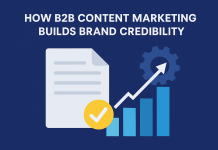Companies are constantly seeking ways to gain an edge and understand their prospects better. Intent data has emerged as a valuable tool, offering deep insights into buyer behavior, helping B2B sales teams identify potential customers, and guiding targeted outreach efforts.
Understanding how and when prospects search for specific solutions allows B2B companies to focus on high-conversion opportunities, optimize marketing campaigns, and achieve better results. This blog will explore how intent data is transforming B2B sales and the key benefits it brings to the table.
What Is Intent Data?
It refers to data generated by potential customers through their online activities, such as search queries, website visits, and content consumption patterns.
This data helps marketers and sales teams understand the “intent” behind a prospect’s actions, providing a clearer picture of their readiness to make a purchase.
By leveraging intent data, B2B businesses can create highly targeted marketing strategies, respond proactively to buyer signals, and ultimately, drive sales more effectively.
How Intent Data Has Transformed B2B Sales
The impact of intent data on B2B sales goes beyond identifying potential buyers. It has become a cornerstone in data-driven marketing, helping companies enhance their lead generation efforts and streamline their approach to closing deals.
Here are some of the primary benefits of using intent data in B2B sales:
1. Boosts Prospecting Efforts
With intent data, B2B companies can identify prospects in the early stages of their buying journey. Online platforms can track the type of content visitors engage with most, alerting sales development representatives (SDRs) to potential leads.
SDRs can then customize their outreach based on this information, introducing prospects to relevant solutions and increasing the likelihood of engagement.
2. Enhances ROI
Improving return on investment is a key objective for any sales or marketing team. With intent data, search engine marketing professionals can better qualify leads by examining factors like industry, revenue, and stage in the buyer’s journey.
This makes it easier for teams to focus on high-value accounts, directing resources toward leads most likely to convert and maximizing marketing spend efficiency.
3. Identifies New Market Opportunities
It is also invaluable for discovering new markets and untapped segments. Traditional methods of targeting often overlook emerging industries or needs, but it reveals potential areas where a company’s products could be valuable.
By analyzing data from these new markets, companies can create tailored content to engage these new audiences, effectively expanding their reach and diversifying their lead pool.
4. Supports Account-Based Marketing Campaigns
In B2B sales, account-based marketing has become an essential strategy for focusing efforts on high-value accounts.
It helps map a prospect’s journey, enabling marketing teams to provide relevant content—such as blog posts, white papers, or webinars—that addresses the buyer’s specific needs.
This tailored content allows SDRs to effectively nurture leads, moving them closer to a purchasing decision and enhancing the efficiency and impact of ABM campaigns.
5. Strengthens SEO and Content Strategy
Effective search engine optimization relies heavily on understanding what content resonates most with audiences. It provides insights into the types of topics and content formats that prospects are most interested in.
By analyzing these trends, B2B marketers can develop content strategies that address common questions and pain points of their audience, improving SEO performance and establishing online authority.
For example, if intent data indicates that prospects frequently search for “how to improve lead generation in B2B,” content teams can create articles, guides, or videos around this topic to attract more qualified leads.
Conclusion
The integration of intent data into B2B sales and marketing strategies is transforming how companies approach lead generation, nurturing, and conversions. It offers valuable insights into buyer behavior, enabling B2B businesses to optimize prospecting, increase ROI, uncover new markets, enhance ABM efforts, and boost SEO performance.
For any B2B company aiming to stay competitive, adopting intent data-driven strategies is essential for sustainable growth and success.
Effective use of intent data allows businesses to achieve better-targeted marketing, stronger customer engagement, and a clear competitive edge in the fast-paced world of B2B sales.









